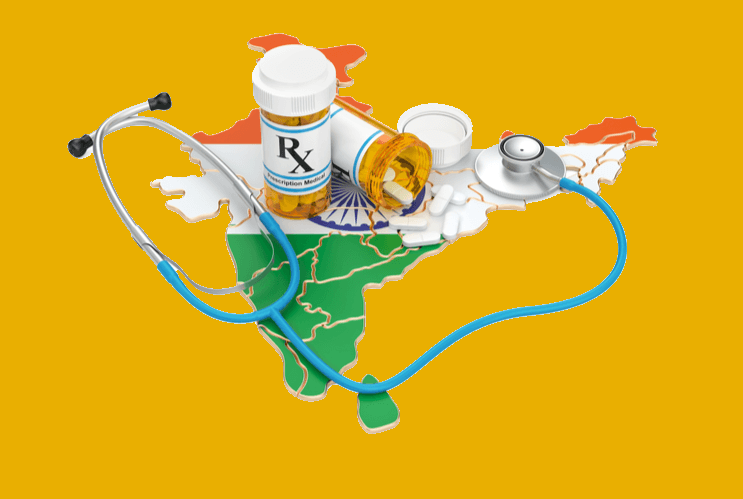Guru Prasad Mohanta
NITI Aayog, the Government think tank, recently released the country’s Health Index, which highlights individual states and Union Territories. The report has both good and bad news. The good news is that health outcomes of some states are almost on par with upper middle income and high income countries.
Neonatal Mortality Rate (NMR) in Kerala is comparable with that of Brazil or Argentina. Overall, the health index score of Kerala, the best performing state, is over two-and-half times the overall score of the least performing state. It is a matter of pride for Kerala that it is the top Indian state in health for past two years with score of 74.01.
Odisha has an overall score of 35.97 and is ranked 19 on the index. For Bihar, the less said the better. The death of more than 150 children from Acute Encephalitis Syndrome bears testimony to the poor status of the public healthcare system there.
One of the biggest challenges before India today is to address the high out-of-pocket expenditure on health, besides non-availability of healthcare services in many parts of the country. Catastrophic health expenditure pushes 55 million Indians into poverty each year. India has committed to achieve universal healthcare (UHC), which is reflected its National Health Policy 2017.
Unfortunately, the first pillar of the Ayushman Bharat is given less priority in terms of resource allocation and programme implementation compared with health protection scheme
To march towards UHC, the government has introduced initiatives such as strengthening health systems, improving access to quality essential medicines and reducing catastrophic expenditure of healthcare. Ayushman Bharat Scheme was introduced amid these. The scheme rests on two pillars: Health and Wellness Centres; and National Health Protection Mission for secondary and tertiary care of vulnerable families.
The health protection scheme offers public insurance to about 40 crore people to go for treatment at higher centres of care. The insurance does not cover daycare or outpatient care. This provision may cause forceful hospitalisation and overenthusiasm among people to go for higher centres; it would make insurance unsustainable. Also, outpatient care would require catastrophic expenditure unless it is freed of cost.
The establishment of health and wellness centres is the first pillar of Ayushman Bharat. These are improved versions of existing health sub-centres and primary health centres. Unfortunately, the first pillar of the Ayushman Bharat is given less priority in terms of resource allocation and programme implementation compared with health protection scheme.
A pilot study conducted in 67 health centres of Tamil Nadu, where these centres were upgraded as Health and Wellness centres, showed a dramatic decrease in out of pocket expenditure. People’s access and utilisation of healthcare services has greatly improved.
The Health Index report has shown the existence of huge disparities among states. It is time to improve the healthcare situation. Health is the most important resource and healthy persons make healthy nations. Health insurance schemes of state or central governments can redress secondary and tertiary care needs but the government will have to spend big on such ventures. States that have not accepted the Ayushman Bharat for political compulsions before elections may reconsider joining it.
Poor-performing or sick states may have savings from adoption of the central scheme, which they can use to improve primary care that would not only reduce infant mortality and under 5 mortality rates but also improve immunisation coverage. The governments of United Nations Member States under the ‘Declaration of Astana’, have pledged to strengthen their primary healthcare system to achieve UHC. It is an affordable and achievable goal.
Treating a single disease or condition is not healthcare. It is about caring for people and helping them maintain health and well-being. Primary healthcare has been recognised as a tool to promote health and to achieve UHC. Strengthen them. Build quality health systems that people and communities can trust. Empower service providers of basic healthcare through training to adopt best practices followed in high-performing states to achieve quality.
The writer is a professor of pharmacy, Annamalai University, Tamil Nadu.
